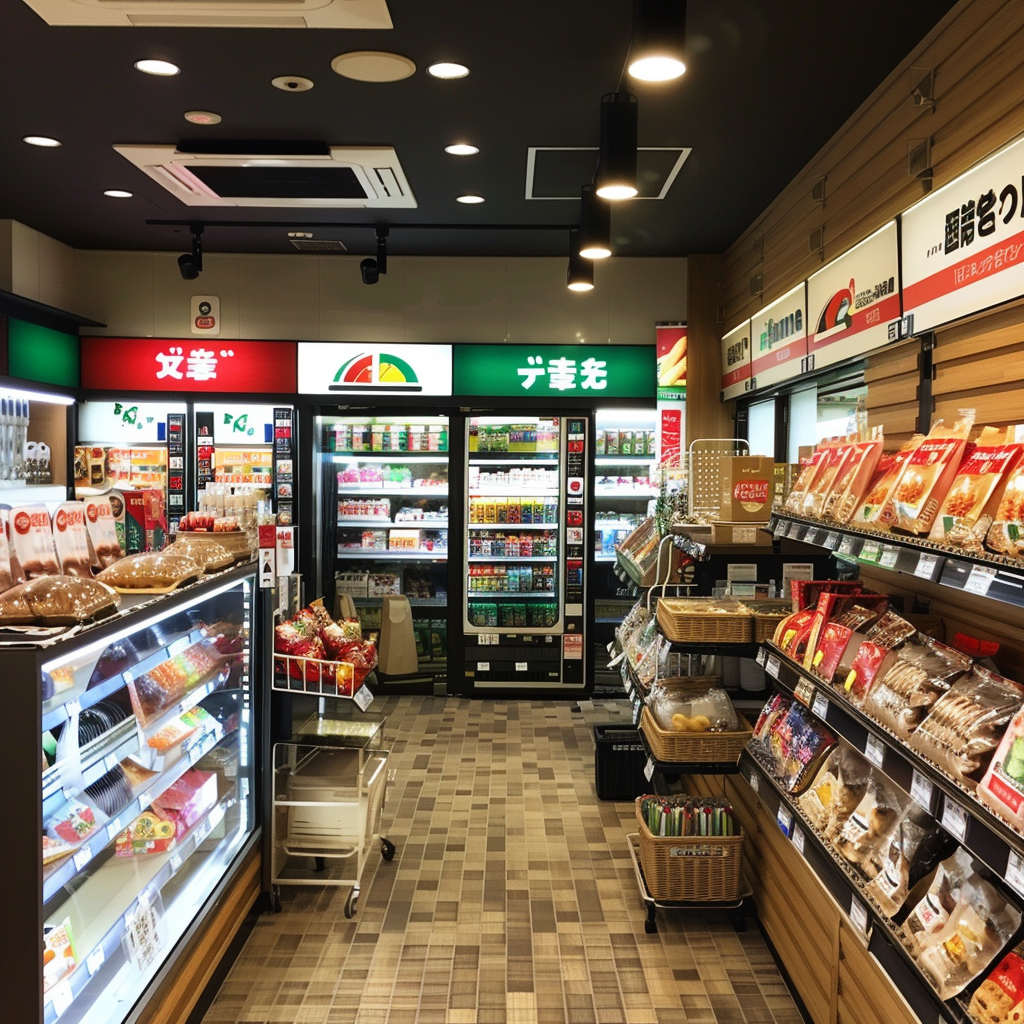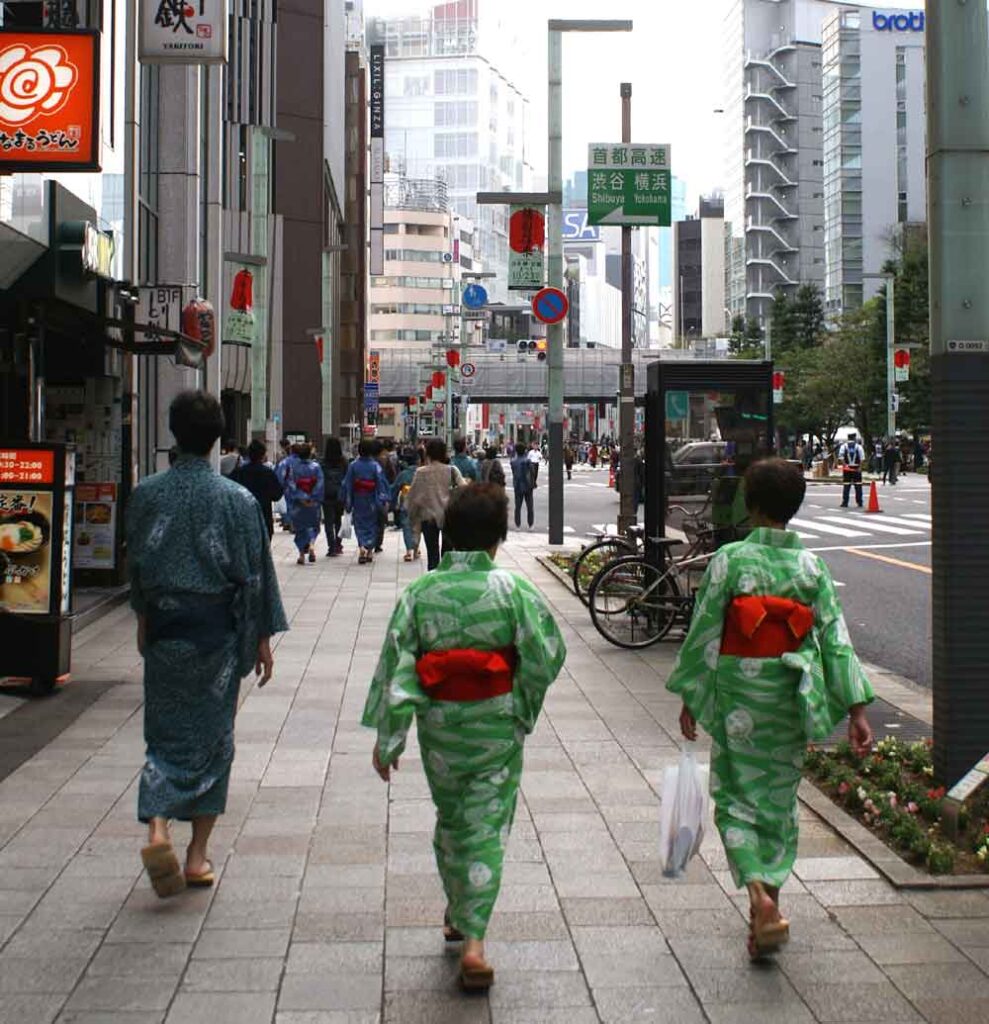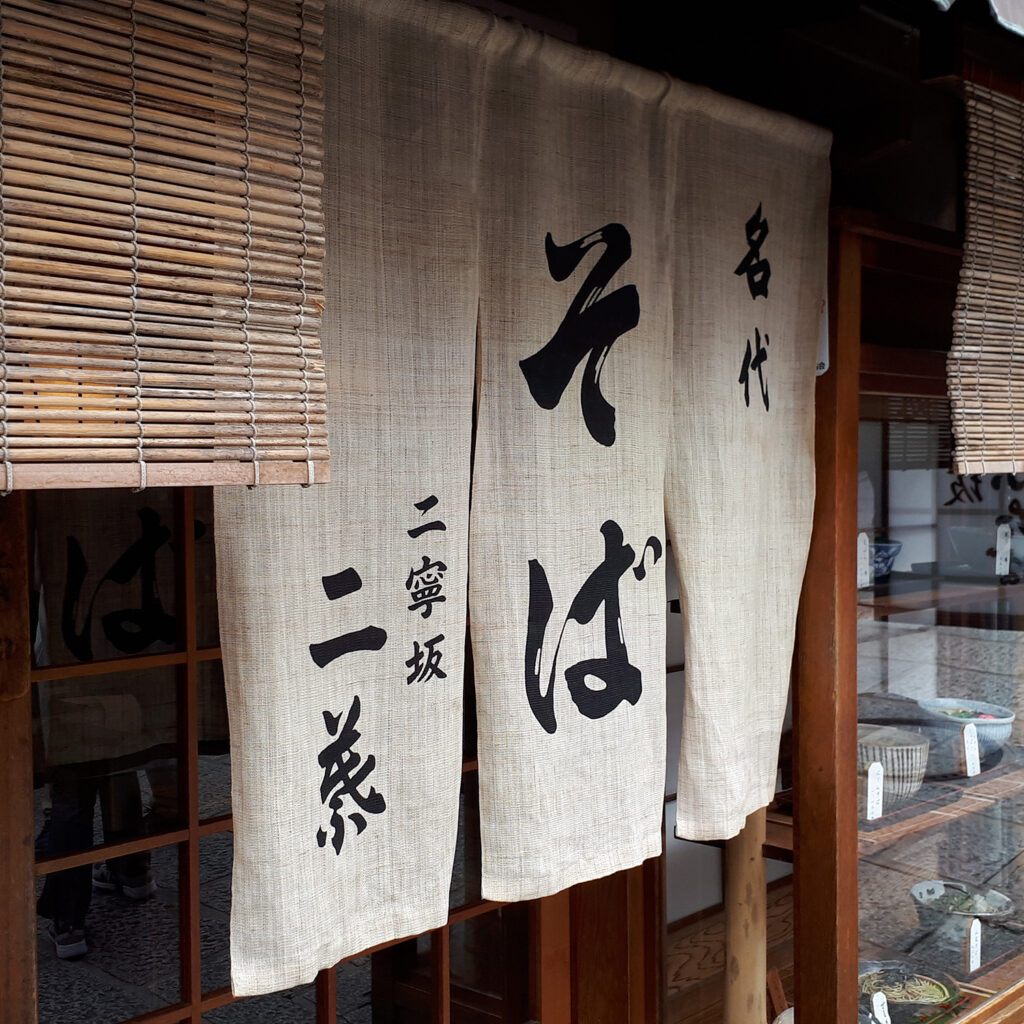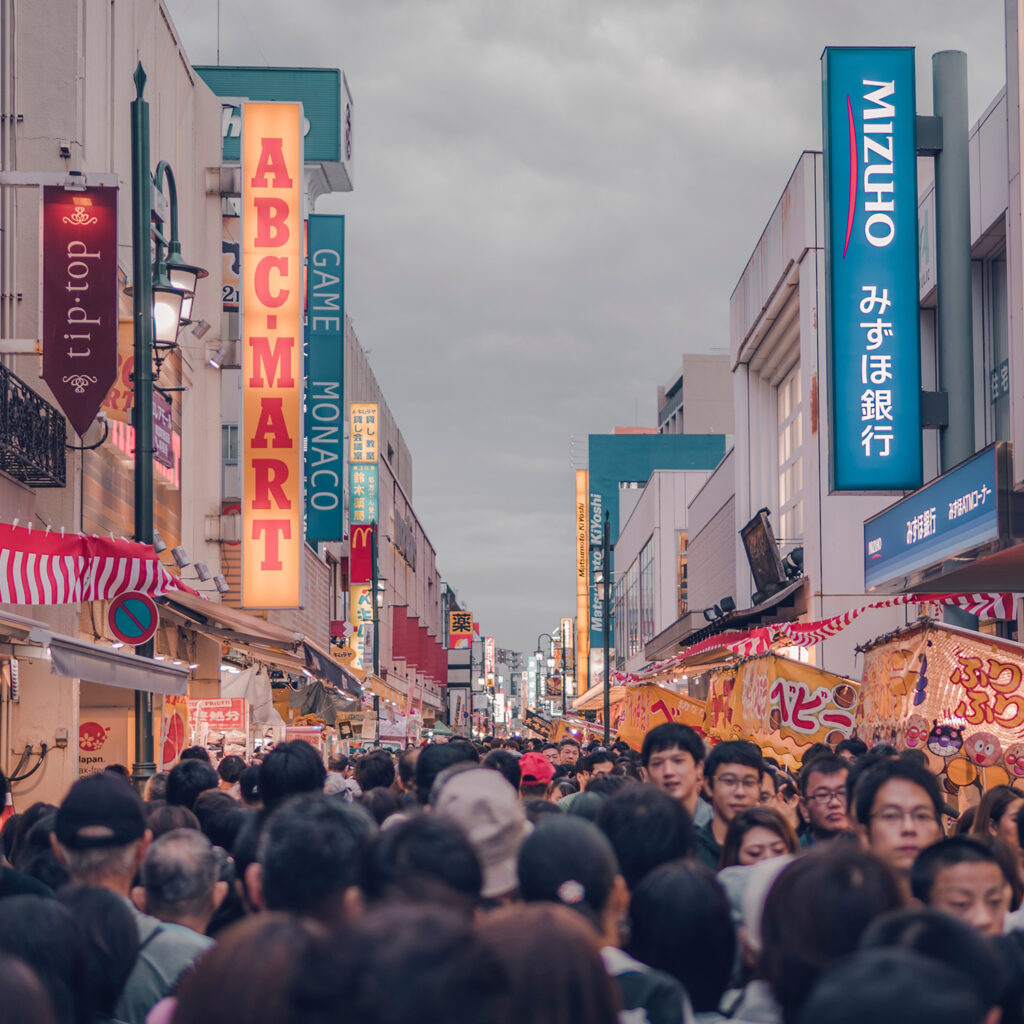In the Japanese urban fabric, an essential element links modern society to its traditions: Konbini, or Japanese convenience stores. These small neighborhood grocery stores are much more than just points of sale. Indeed, they represent a cultural and social phenomenon deeply rooted in the daily life of the Japanese. Wherever you go in the land of the rising sun, you will never be far from a Konbini.
The Konbini: Origin and Evolution:
These small grocery stores began in the 1970s and quickly spread throughout Japan. Their innovative concept of stores open 24 hours a day, 7 days a week, responded to the growing demand of city dwellers for convenient and fast services. These early Konbini were often franchises of major chains like 7-Eleven, Lawson and FamilyMart.
Over the decades, these convenience stores have evolved to become much more than just grocery stores. They have become full-service centers, offering an impressive range of products and amenities. From ready-to-eat foods, beverages and snacks to toiletries, electronics and banking services, Konbini have been able to adapt to the changing needs of their diverse customer base.
A Pillar of Urban Life:
For the Japanese, Konbini are much more than places to buy food and essentials. They have become an extension of their home. They have also become a place to quickly get what they need at any time of the day or night. Konbini employees are often seen as essential members of the local community. Because they offer a friendly and attentive service to each customer.
Additionally, Konbini play a vital role in urban security. Their neon signs and well-lit interiors provide visual cues for passers-by. This makes them popular as safe meeting points, especially at night.
Innovation and Sustainability:
Japanese Konbini are also at the forefront of innovation and sustainability. They have adopted cutting-edge technologies to improve customer experience. For example, self-checkouts and mobile ordering and payment apps. Additionally, many Konbini have taken steps to reduce their environmental footprint. Indeed, they have introduced recycling initiatives and sustainable packaging.
The Konbini: A Window on Japanese Culture:
Finally, these convenience stores offer foreign visitors a fascinating window into modern Japanese culture. Whether observing the shopping habits of locals or exploring the unique products available only in Japan, a visit to a Konbini is an experience in its own right. This actually allows us to better understand the rituals of Japanese daily life.
Conclusion:
Konbini are much more than just grocery stores. These are iconic institutions that embody the very essence of urban life in Japan. Their omnipresence, adaptability and social importance make them essential elements of the Japanese urban landscape. The Konbini are therefore an unmissable experience for any visitor wishing to discover the richness and diversity of contemporary Japanese culture.





